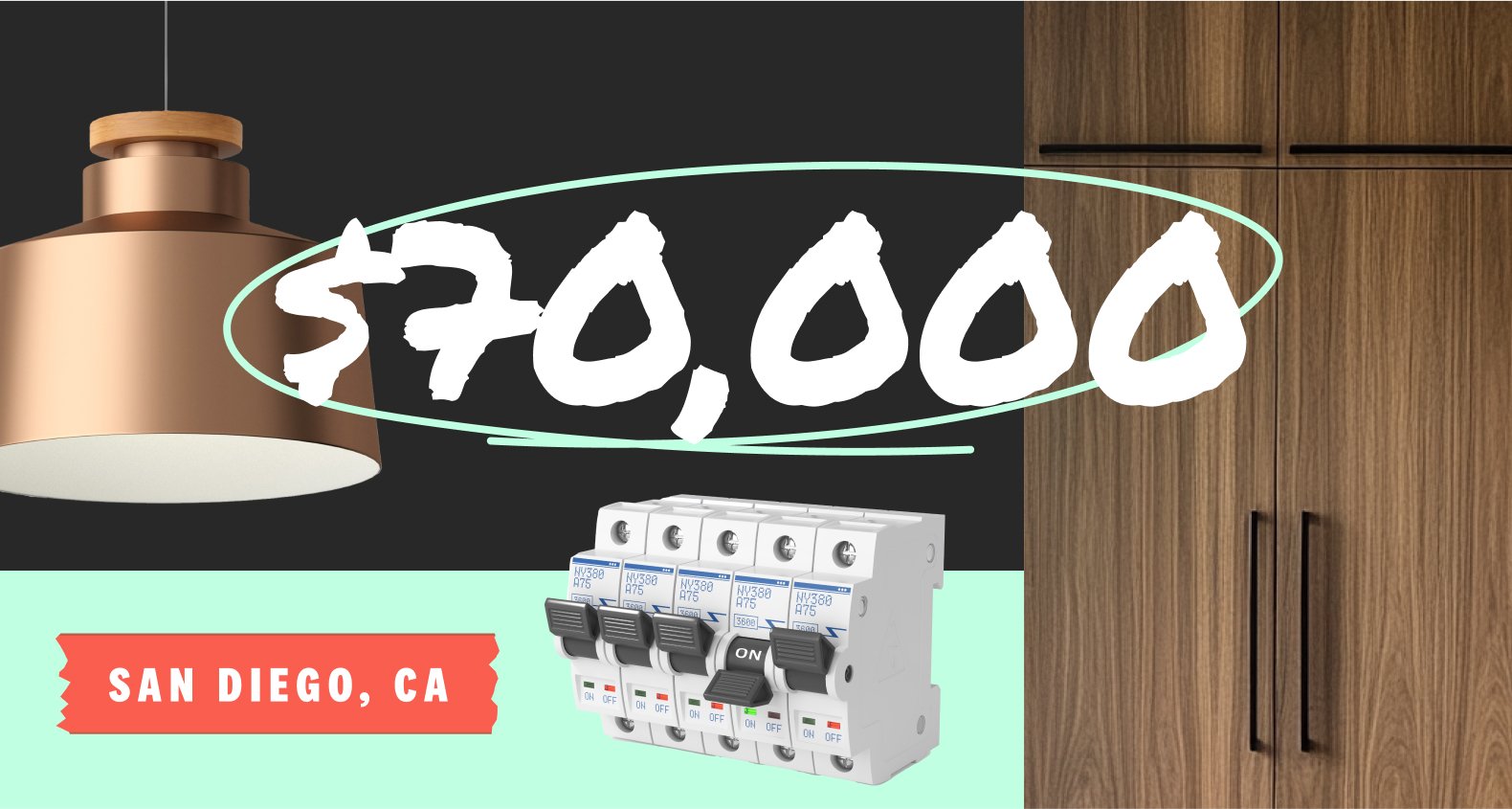How Much Does It Cost to Add a Half Bathroom? [2025 Data]
The average U.S. homeowner spends $6,500 on a half bathroom, but the cost ranges from $4,500 to $12,000, depending on the scope of the project and the furnishings.


Adding a half bathroom costs an average of $6,500, though most homeowners spend between $4,500 and $12,000 on the project. This comes out to about $230 per square foot to add a new half bathroom. While this may seem steep, remember that most home additions add value to your home. Plus, adding a half bathroom adds extra convenience—especially for large households.
Size of Half Bathroom
Like many home projects, the size of your addition is directly related to your total project cost. However, unlike larger-scale projects like replacing a roof or changing the flooring in your whole house, adding a half bath won’t really benefit from an economy of scale. Ultimately, you’re just not purchasing enough materials to satisfy the requirement for bulk discounts.
Here is a look at the average cost to add a half bathroom based on square footage.
| Size of Half Bathroom in Square Feet | Average Cost |
|---|---|
| 15 | $3,000–$3,900 |
| 20 | $4,100–$4,800 |
| 30 | $6,200–$7,500 |
| 35 | $8,100–$10,300 |
Professional Costs
If you don’t choose to go with a home addition company near you, there are pros you need to pay. Each one has a different rate and like most things, the more specialized they are, the more they will cost. Below is a list of common professionals needed for a half-bath addition.
Electrician Costs
Hiring a professional electrician is necessary when you add a half bathroom, since the project involves specific skills that the typical homeowner doesn’t have. Common costs include:
Installing an outlet: $130–$300
Adding a lightswitch: $60–$300
Adding a light fixture: $180–$400
Rewiring existing electrical: $600–$1,800
Plumber Costs
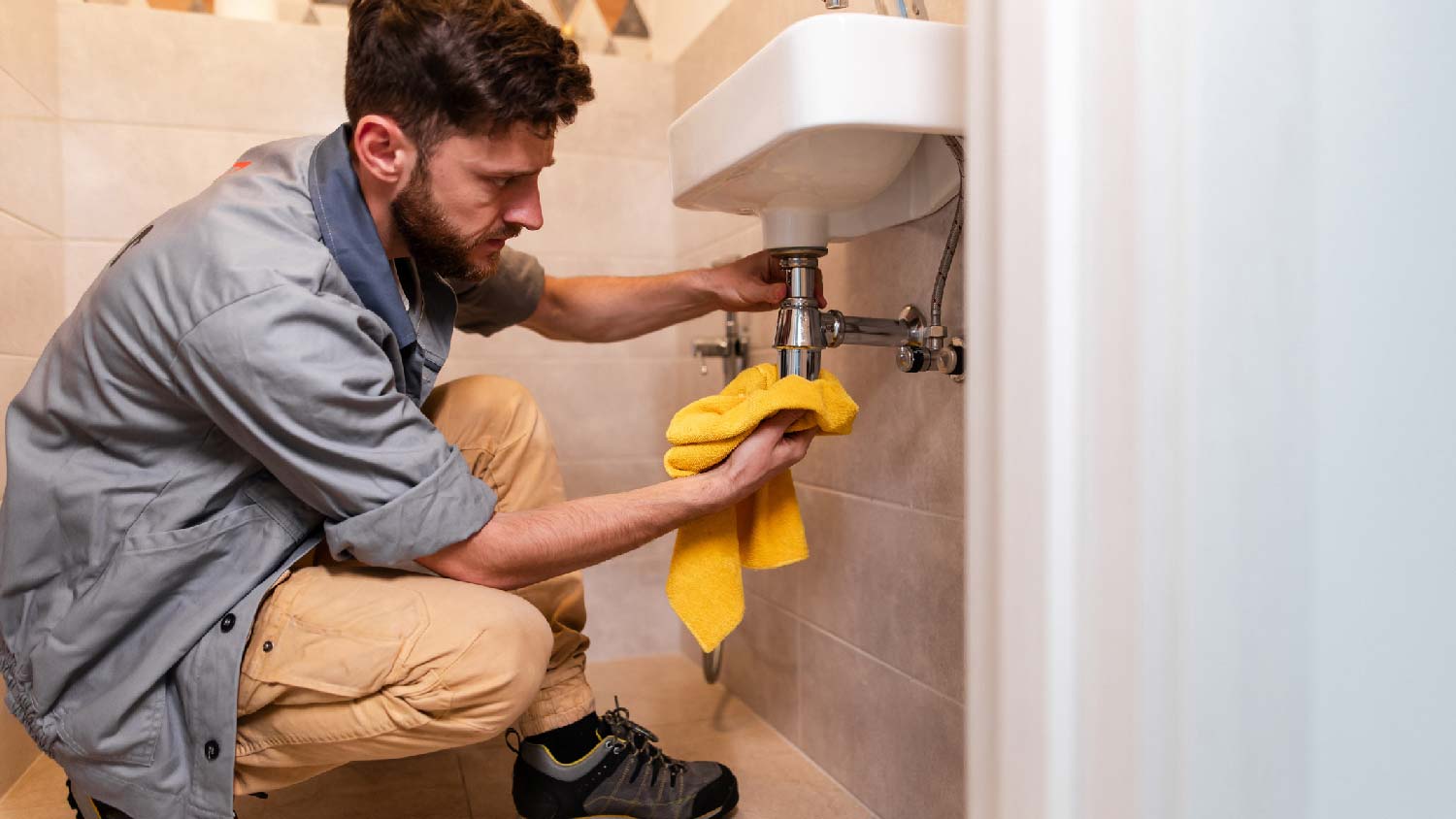
You’ll also need a plumber for this project. Make sure they are certified and you double-check where to place the toilet and sink as these are often expensive to change later. Common costs include:
Installing a sink: $220–$650
Replacing pipes: $1,600–$11,600
Rough-in plumbing for a bathroom: $2,400–$18,000
Architect Costs
Those without planning skills should hire an architect. Architects often charge a percentage of the total project cost, around 8% to 15%. Hourly rates will amount to $90 to $160 or more. Investing in the cost of hiring an architect is wise in order to save money down the line and you may be surprised with a design you wouldn’t have thought of yourself.
General Contractor Cost
Working with a general contractor will cost homeowners 15% to 25% of the project cost. While this seems steeper than piecemealing work to separate pros, consider that a general contractor has unilateral control over the entire project. This ensures an even quality of work, and if there are any problems down the line, there is only one pro you need to work with—the general contractor.
Additional Cost Factors
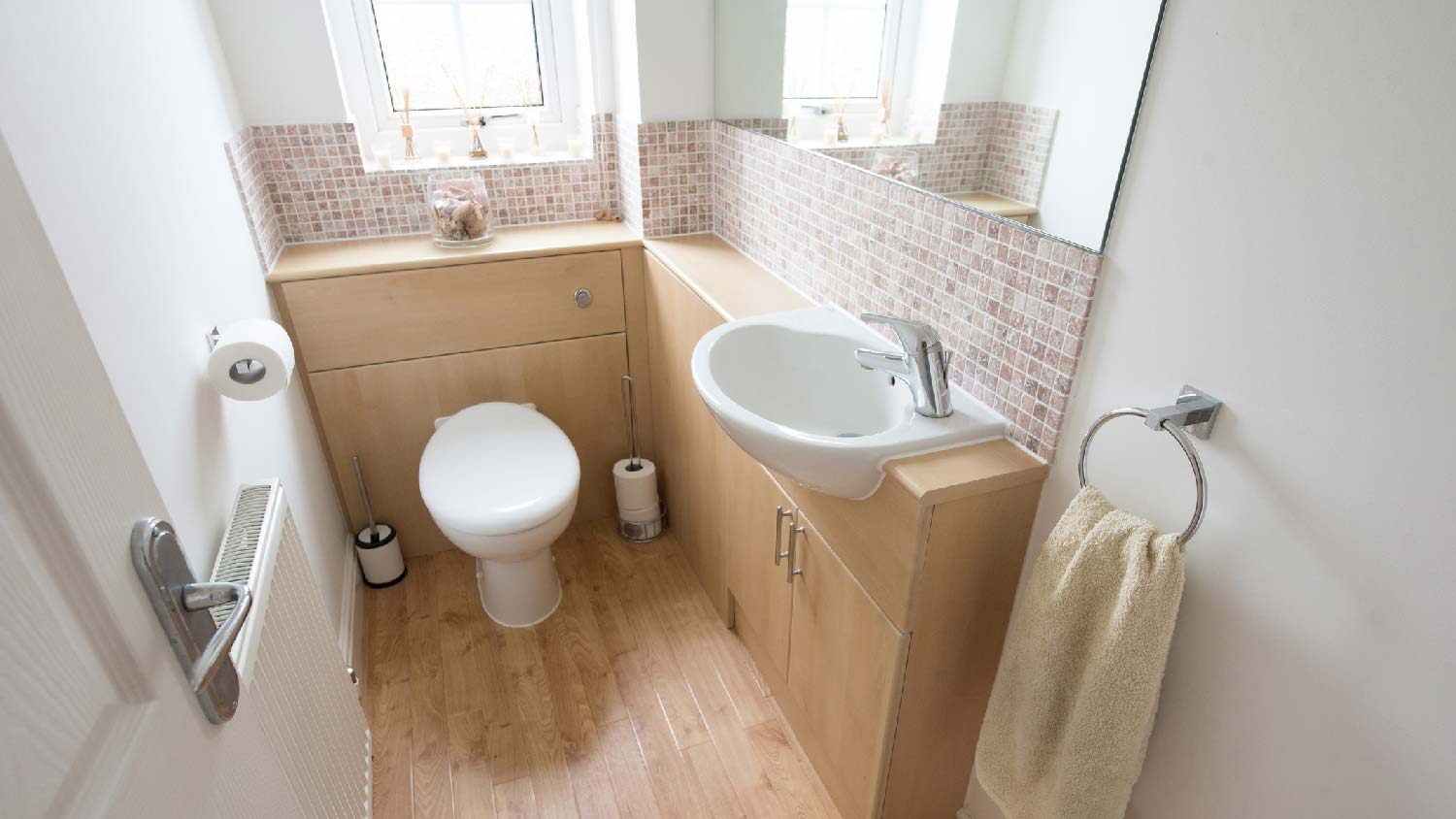
Adding a half bath can have some unwelcome additions to your project’s bottom line. While there are some ways to avoid the two examples below, 90% of homeowners will need to consider them when pricing out—and completing—their half-bath addition.
Demolition and Prep
If you’re taking space off of your living room to accommodate a half bath, you don’t need to do any demo. However, if you decide to significantly alter your home’s layout, expect the price to rise as permits need to be pulled and the cost of planning balloons. You can’t prep much for this job other than removing flooring and any electrical or existing plumbing—don’t do this yourself—so you need to hire a pro for pretty much anything beyond taping out the area or knocking out some drywall.
Permits
You’ll likely need a building permit to build a half bathroom. The price of such a permit depends on your municipality, but expect to pay between $125 and $600. If you’re working with a local bathroom remodeler, they will be able to help you through the permit process. However, they will file and secure it themselves as part of your project cost.
Accessories or Special Features
Half baths have the luxury of being more sparsely furnished than the main bathroom of a house. Many homeowners choose less expensive options because a half bath is often one of convenience, not style. Here are the average costs of some common half-bathroom features.
| Feature | Average Cost |
|---|---|
| Plastic Toilet | $50–$200 |
| Ceramic Sink | $100–$550 |
| Ceramic Toilet | $120–$430 |
| Smart Mirror | $90–$300 |
| Exhaust Fan | $25–$80 |
| Stone Sink | $400–$1,200 |
| Simple LED Light Fixtures | $15–$70 |
| Complex Chandeliers | $180–$1,800 |
| Travertine Tile | $3–$9 per square foot |
| Laminate Flooring | $1–$4 per square foot |
DIY Adding a Half Bathroom vs. Hiring a Pro
If you choose to DIY a half-bath addition, you’ll save around 30% of the total project cost in labor, not taking into account your own time value. While this may sound appealing, we recommend combining DIY work with the use of a general contractor, thus lowering the time it takes for the addition.
You don’t want to attempt any plumbing or electrical work because it can cause serious damage if done incorrectly. However, you can work alongside a general contractor doing some of the more simple work, like tightening screws, painting, or laying down laminate.
Once you have a proposal for work outlined, discuss with your general contractor what you can do yourself to cut down on costs.
Tips to Reduce Costs While Adding a Half Bathroom
When building a half bath, you should focus money-saving efforts on materials—not labor. Some ways you can save are:
Perform the time-intensive but low-skill labor yourself (like painting).
Check salvage stores for used or unused fixtures like sinks and toilets.
Sign up for home improvement store discount emails.
Talk to your contractor about where you can cut costs in materials.
Reuse any old plumbing you might have if it’s still in good working order.
Use energy-efficient fixtures (toilets, sinks, lights).
Consider budget alternatives to expensive materials like marble and steel.
Does Adding a Half Bathroom Increase Home Value?
Adding a half bathroom increases a home’s financial value by about 6%. Depending on the size of your home and the number of bathrooms you already have, this number can fluctuate quite a bit.
A larger home with five full bathrooms will not see a 6% increase in their home’s value by adding a half bath—more like 2% or even less. Flip the coin and consider a small house with only one bathroom. Adding a half bath to a smaller property can easily increase the home’s value over the 6% average.
Beyond finances, a half bathroom adds quality of life value to a home. In the above example, a half bathroom in the large house may be used next to a mud room, saving the occupant from having to walk upstairs or across the house. A half bathroom in a small house with one bathroom means there are two available toilets, eliminating trading turns for a single bathroom.
Finally, a half-bathroom addition will appeal greatly to buyers looking for more than one toilet and sink in a property and can generate increased interest during a sale.
Frequently Asked Questions
Adding a half bathroom can be worth it for two reasons: you want to increase the liveability of your home and increase its value. While a value increase is more likely for a smaller home than a larger one, smaller houses with a large number of occupants can see a drastic increase in the ease and flow of daily life with the addition of a half bathroom.
Adding another bathroom isn’t the most complicated project you can undertake, but it’s in the top 5%. Anything involving plumbing and electrical work should be handed off to a pro, and adding a half bath involves both. A contractor may charge $70 to $120 an hour for labor, but chances are they can work much faster and more accurately than a DIYer.
The most expensive part of adding a bathroom will always be the wet areas, such as the toilet, sink, and shower. Considering a half bathroom won’t have a shower, you’ll save quite a bit of money there versus adding a full bath with a shower or tub. Using qualified professionals is a requirement when dealing with plumbing and electricity, so while you can do some of the addition yourself, leave these two to the pros.
Altering the layout of your bathroom will make a big difference as moving or adding plumbing quickly inflates your total bill. While you can recoup more of your cost (in home value terms) by adding a bathroom, rearranging the layout won’t affect your home’s sticker value. However, strategic placements that allow more light or better flow may increase buyer interest.
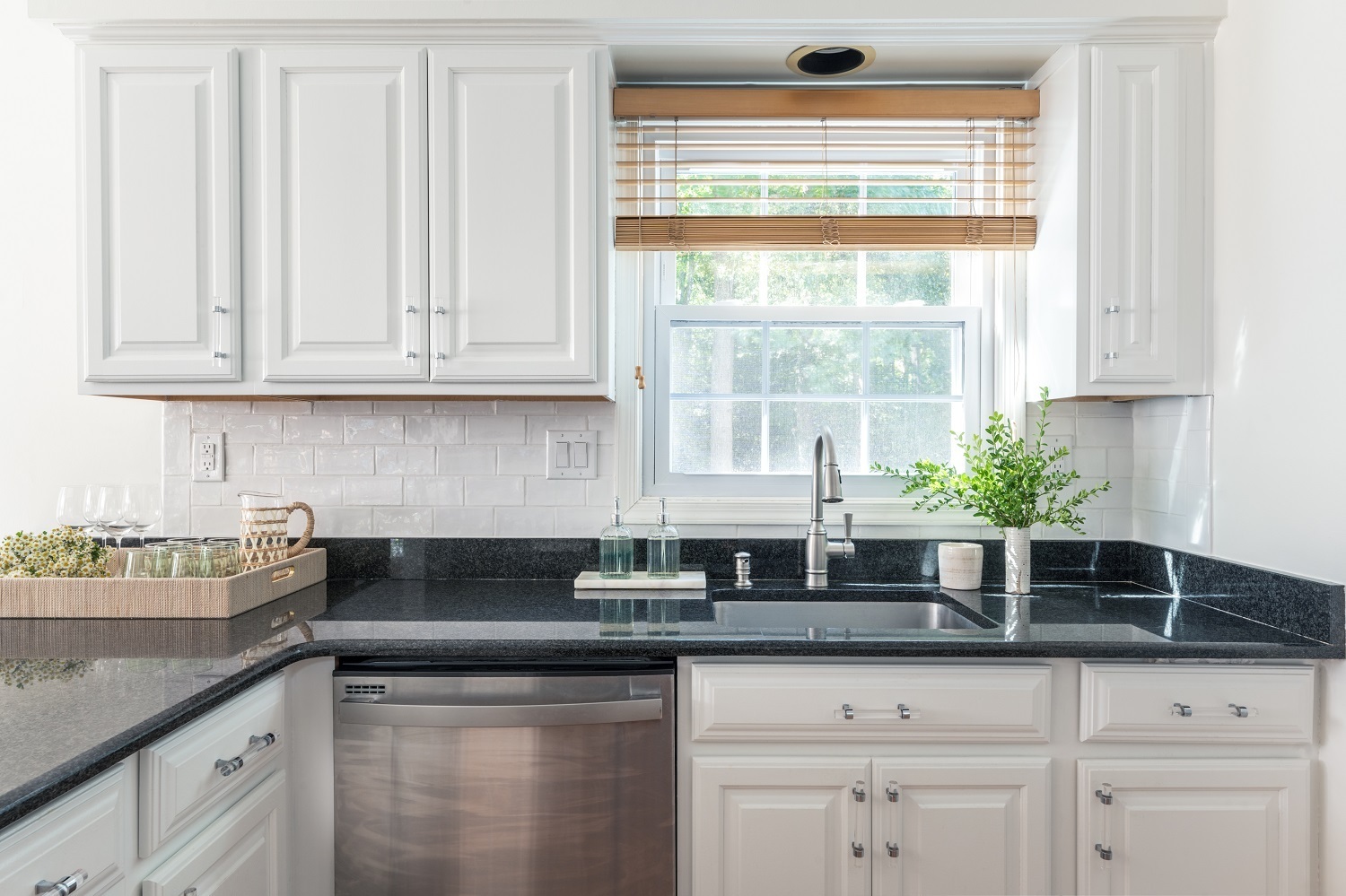
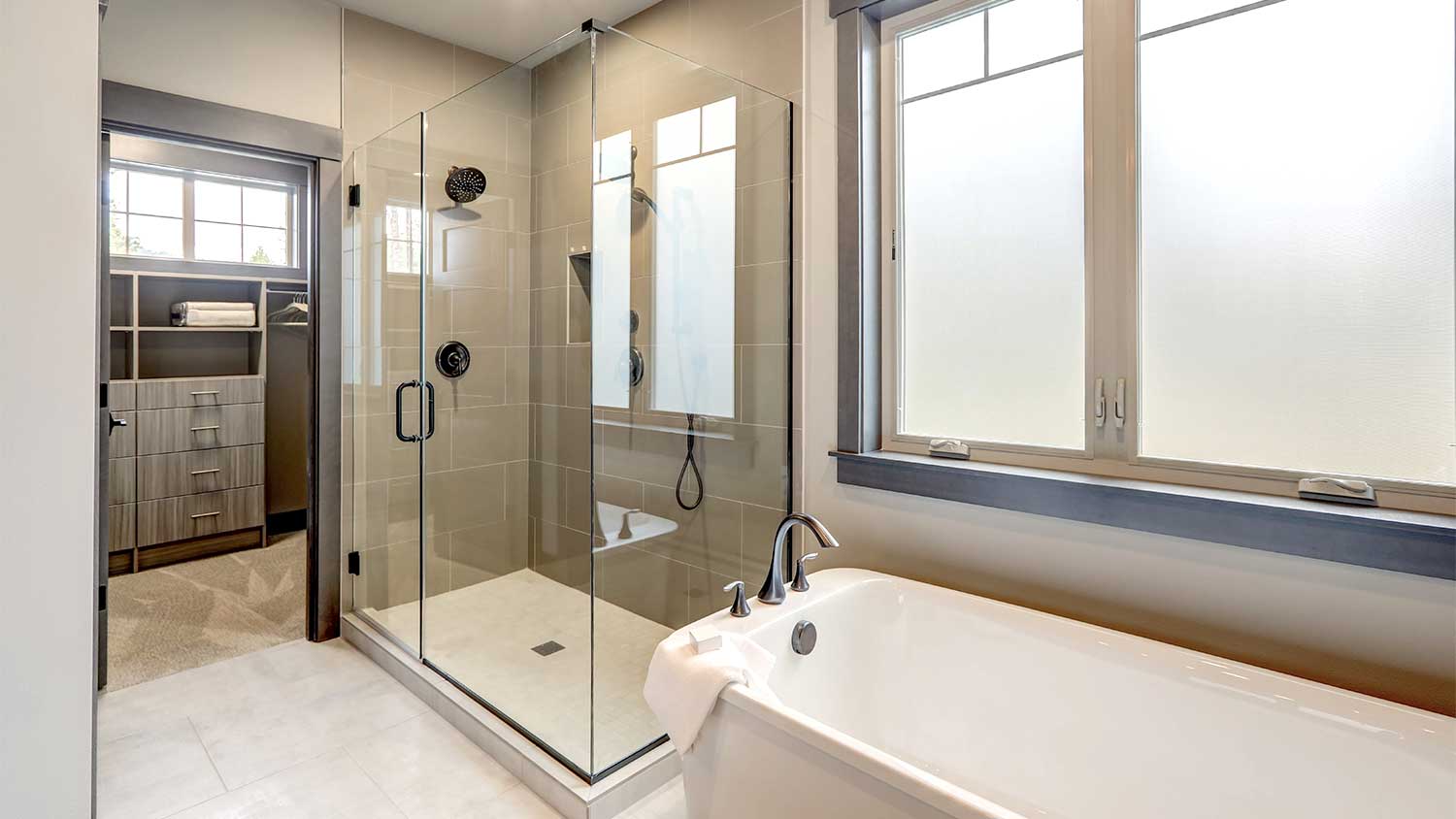



- Bathroom Remodeling
- Kitchen Remodeling
- Shower Installation
- Stair Installers
- Bathtub Installation
- Shower Door Installers
- Kitchen Design
- Bathroom Design Companies
- Storm Shelter Builders
- Pre-Made Cabinets
- Kitchen Refacing
- Bathtub Replacement
- Ceiling Tile Installation
- Suspended Ceiling Companies
- Residential Designers
- Stair Builders
- Remodel Designers
- Shower Enclosures
- Home Renovations
- Kitchen Renovations
- Garage Remodeling
- Grab Bar Installation
- Walk-In Tub Installers
- Tub to Shower Conversion
- Balcony Contractors



